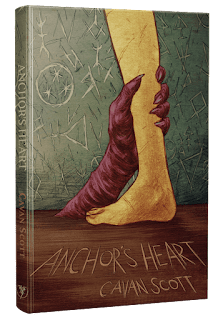From there the film could have developed into a tedious emotional drama about isolation, trauma and small-town life, but thankfully evil aliens intervene! Brynn is woken by what she assumes is an animal going through her bins. She gets up to investigate, but then hears footsteps downstairs. It’s a grey alien, one of those with an oval head and big black eyes, and, as she unfortunately finds out, it has telekinetic powers which let it pick her up, throw her around and, erm, open and close the refrigerator doors.
Brynn knows that no one is coming to save her – that no one would even want to save her. For the entire film, through one brush with extraterrestrial danger after another, she has only herself to rely on, and we root for her as she does it. That’s partly thanks to an excellent performance from Kaitlyn Dever, previously so good as the teenage wannabe kingpin in Justified. Even without dialogue, she conveys Brynn’s desperation perfectly, and comes close to making it a very good film.
The main problem is that it is so clearly a mish-mash of greatest hits from other films: Signs, 10 Cloverfield Lane, Spielberg’s War of the Worlds, Nope, Skyline, Communion, etc. It synthesises them well to produce some alarming scenes, but it hews so close that with a few jokes at key moments it would feel like a parody. Younger viewers who haven’t seen those films will enjoy it the most, I think, and perhaps on a second viewing I would enjoy it more for what it is, rather than seeing the jigsaw pieces.
Apart from the aliens’ weird finger-toes, the most original aspect of the film for me was how it has you cheering for the violence she inflicts on the various types of alien she encounters, sometimes by luck, sometimes by design, but then asks you to consider whether that capacity for violence is a good thing, even as it is saving her life. The ending will be divisive. I thought it was perfect, but I was wholly unconvinced by the route the film took to get there. See what you think. Stephen Theaker ***



